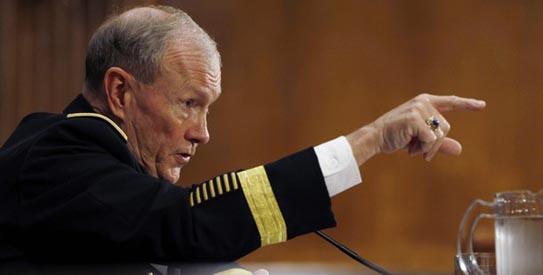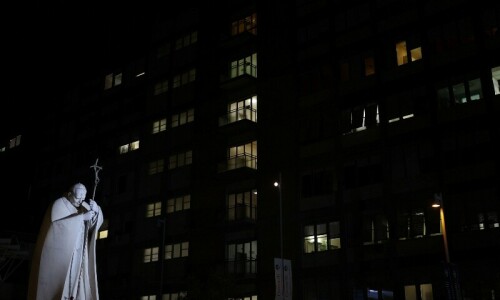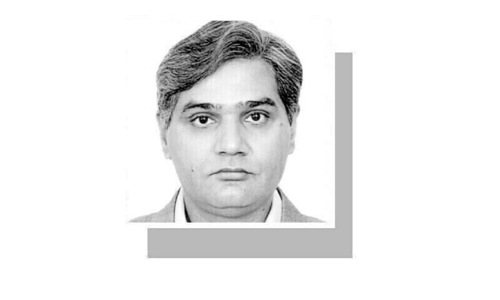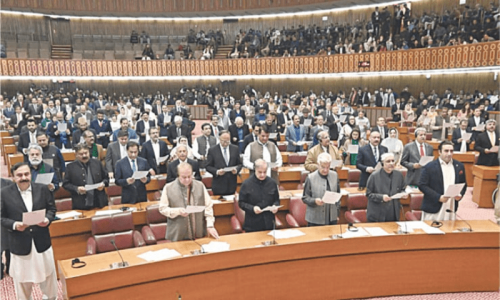
WASHINGTON, Dec 9: The US military chief has said there still are sanctuaries for militants in Pakistan and that the country’s influence in Afghanistan needs to be tackled. “In Pakistan, the sanctuary for these militants persists. We have to work hard to end its influence on our Afghan mission,” Gen Martin Dempsey said on Friday.
The chairman of the US joint chiefs of staff also said that Pakistan’s decision to block Nato supply routes reflected badly on its relationship with the United States.
The US military chief indicated that the US was already working on alternative routes to reduce its dependence on Pakistan for supplying its troops in Afghanistan. “We can change the percentages of our reliance upon the Pakistani line of communication.
“We can adjust and we can get it done. It will be more expensive. It will be time-consuming but we have the time to do it,” he said.
“The real problem for me is not the cost. What is troubling me is that they would close the route. What it says about the (US-Pakistan) relationship is troubling for us.”
The general insisted that those who were burning Nato fuel trucks in Pakistan were doing little harm to the US. “When they torch fuel, it is not our fuel they are torching. We do not pay for fuel until it gets to us.”
Gen Dempsey claimed the US military had achieved its “intended purpose” in Afghanistan by reversing the Taliban momentum. He noted that a recent loya jirga in Afghanistan had emphasised the need for establishing a long-term relationship with the United States “in a very encouraging way”.
Gen Dempsey insisted that the Nato attack on two Pakistani border posts was not deliberate. “We did not do it intentionally, regrettably the Pakistani military believes that we did,” he said when asked what caused the attack.
“It is incomprehensible to me, based on our relationship, that they believe so, but they do.”
In an earlier statement, he had said the US-Pakistan ties were troubled, but repairable. His latest remarks at Washington’s Atlantic Council, however, reflected a growing disenchantment with an ally that once played a key role in implementing America’s cold war strategy for Afghanistan.
Pakistan’s military said the Nov 26 attack was unprovoked but the US and Afghan officials have claimed that Nato troops were responding to fire from the Pakistani side of the border.
Expressing his exasperation with the Pakistani perception, Gen Dempsey asked: “What in the world we will hope to gain from it? We did not do it intentionally.”
The US military chief said he had spoken to Chief of Army Staff Gen Ashfaq Parvez Kayani, who was his classmate at a military college in the United States, about the incident and was now waiting for the investigation to conclude. He has also held similar discussions with Nato commanders in Afghanistan, he added.
“We have chosen patience and we are asking them (the Pakistanis) to show some patience too.”
Asked why the Pakistanis were claiming that the attack on their military posts was intentional, Gen Dempsey said: “We are kind of the victims of our own success sometimes. The rest of the world sees (us) as all-knowing, all-seeing and completely precise”.
But this was not always true as “the warfare is not just ugly. It is messy. It is chaotic and it is unpredictable. We are waiting for the investigation to tell us what really happened.”
The killings have served to upend Washington’s attempts to improve ties with Islamabad, which worsened after the secret US raid into Abbottabad to kill Al Qaeda leader Osama bin Laden in May. The Nov 26 incident also threatened to undermine US efforts to stabilise the region before a planned troop withdrawal from Afghanistan in 2014.














































